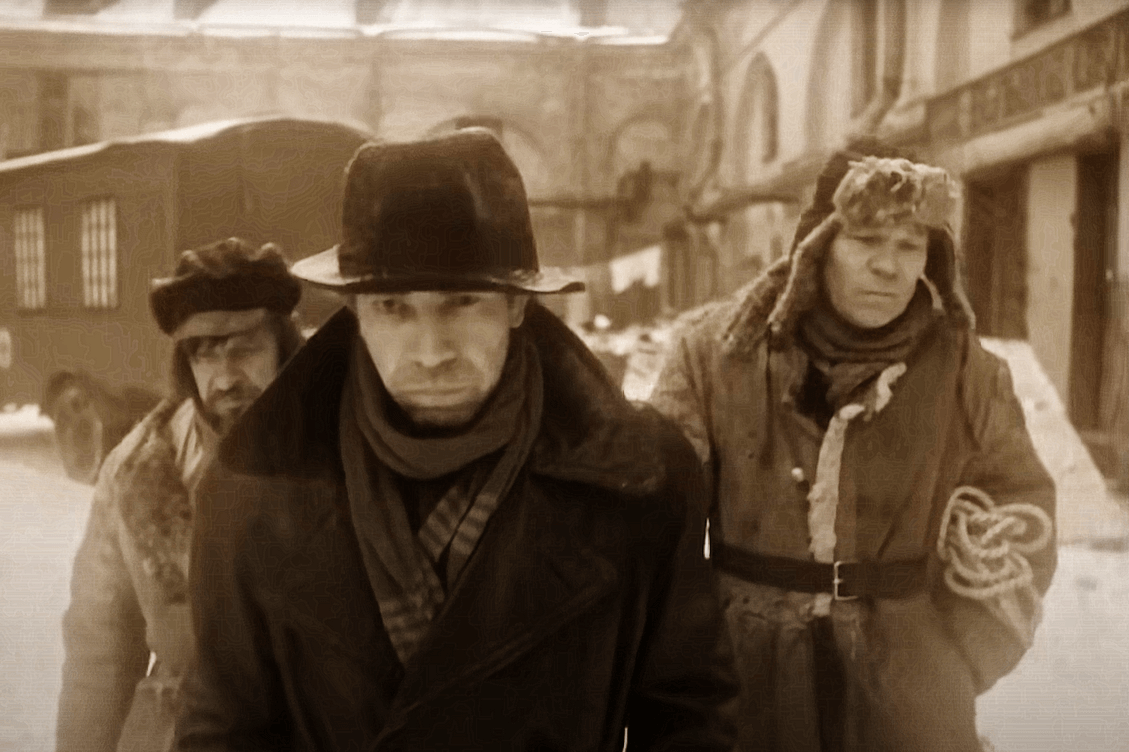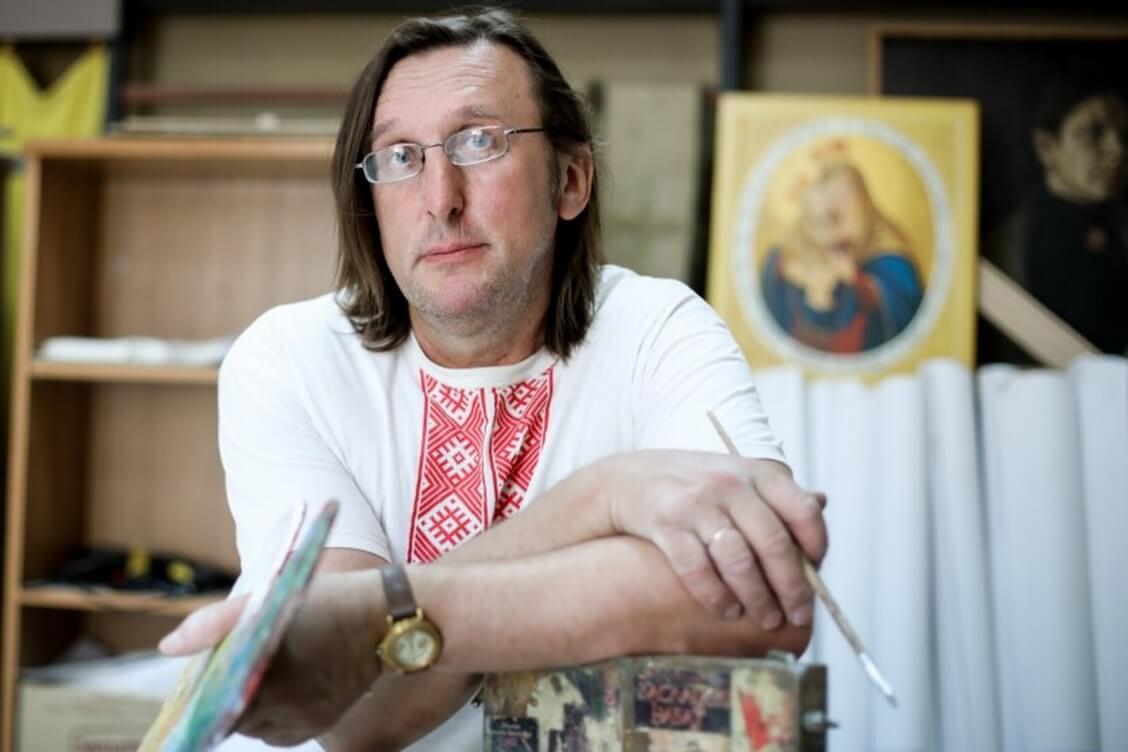On January 9, Alaksandar Łukašenka spoke about “how important it is to preserve our cultural sovereignty,” which sounded completely out of place given that he is gradually ceding ground in all areas, including culture, to Moscow.

“No one is going to stifle anyone for their creativity. This has never happened in our modern history and it will never happen,” the Belarusian authoritarian leader claimed at the For Spiritual Revival award ceremony in Minsk.
Even before 2020, the regime did not treat critical creators with kid gloves, and after 2020 many cultural figures have been targeted by reprisals.
Mercantile view of art and literature
In general, Łukašenka’s views on culture are very down-to-earth and primitive. In December 2009 he said, “Give me a product, give me a commodity! I once said: Put ‘War and Peace’ on the table – I’ll pay.”
In April 2010, Łukašenka lashed out at writers and composers. “There are no outstanding works by our writers, loved by a wide range of readers. Professional composers can’t write a song with which Belarus would be able to perform worthily at the Eurovision Song Contest. Where are you, writers and composers? Bring me your masterpiece. We will pay you a lot of money.”
From his point of view, the pinnacle of music success is Eurovision. He offers cash for masterpieces, as if culture can be forced into a business framework.
Masterpieces ignored by government
In 2015 Belarusian writer Sviatłana Aleksijevič won the Nobel Prize in Literature. Instead of congratulating, authorities did their best to discredit her. She paid a heavy tax on the prize, although Łukašenka could have exempted her in recognition. He did not, because her worldview is alien to him.
In 2020, as protests swept through the country, the writer joined the Coordinating Council for Political Crisis Settlement established on the initiative of opposition presidential candidate Śviatłana Cichanoŭskaja.
In September 2020, when law enforcers began to arrest its members, diplomats from the Czech Republic, Germany, Lithuania, Poland, Slovakia, and Sweden rushed to Aleksijevič’s apartment in Minsk to protect her. The writer was forced to emigrate, and now the government looking to confiscate her apartment.
In 2022, Łukašenka claimed that Aleksijevič “betrayed” the country and “ran away,” adding that “no one expelled her from Belarus. It’s her right. She chose Germany. It’s probably warmer there.”
Indeed, it is probably warmer in Germany than at a Belarusian prison cell in winter. Many creative figures who supported the protests or simply took a stance have ended up behind bars in the last three years. Others have been forced to flee abroad to avoid imprisonment.
The late Vasil Bykaŭ, a prominent Belarusian writer who supported the opposition Belarusian Popular Front in the 1990s, also fell out with Łukašenka.
Bykaŭ had been a soldier during World War II. Łukašenka often talks about his admiration for war veterans, but he only tolerates those who admire him.
The regime hates cultural figures who raise their voices against violence and lack of freedom. In the current system, the artist is a doormat for the government.
Minsk fears even dead artists
According to Belarusian PEN, at least 152 cultural figures were imprisoned as of December 31. Artist Aleś Puškin died in prison several months ago amid reports of the denial of timely medical care.

According to PEN, as of September 12, 153 cultural figures were listed by the interior ministry as extremists, and 23 were designated by the Committee for State Security (KGB) as terrorists.
The revolutionary spirit is so frightening that the government persecutes dead writers. The information ministry listed books by nineteenth-century classic Vincent Dunin-Marcinkievič as extremist content and removed Uładzimier Karatkievič’s historical novel “Spikes Under Your Sickle” from the school curriculum.
The regime hates them for their rebellious, anti-imperial spirit. Minsk kowtows to the Kremlin for fear of incurring its wrath for cultural sovereignty.
Guitars seen as Kalashnikovs
Some might say that cultural workers should not stick their noses in politics. But first of all, anyone can have an active position. Second, the government does not punish pro-government performers for involvement in politics.
In a controversial video, the Hruzdzieŭ sisters, performing for children transferred from the occupied Ukrainian territories to Belarus for indoctrination, wished from the stage that “[US President Joe] Biden is dead”, “and [Russian President Vladimir] Putin prospers and takes control of all of Ukraine.”
That sounded like real extremism, but no officials dared to moderate the singers, since the incumbent sometimes makes even more embarrassing statements.
In October, members of The Tor Band were sentenced to seven and a half to nine years in prison, for their patriotic songs, which opponents had played at 2020 rallies.
The rock band was labeled an “extremist group” by the KGB. The government treats guitars like Kalashnikovs pointed at it.
The Navi Band, which had represented Belarus in the 2017 Eurovision Contest, was also blacklisted after recording protest songs.
Members of Nizkiz, whose songs had been played at the protests, were arrested earlier this month, a few days before Łukašenka assured officials that no one is going to stifle creativity.
Freedom stiflers rule
Five years ago Łukašenka, fearing the imperial threat, used to nail particularly zealous adepts of the “Russian world.” In 2018, three Belarusians who worked for the Russian propaganda news agency Regnum, which denigrated the Belarusian language, culture, and identity, received five-year suspended sentences for inciting ethnic hatred.
After 2020, Łukašenka’s dependence on the Kremlin has grown immensely. The ruler no longer dares to antagonize Moscow, and encourages Russophiles, like Hrodna-based activist Volha Bondarava, to denounce Belarusian patriots to the police.
Bondarava is notorious for her campaign against national symbols, monuments and the Belarusian language. She advocated for the demolition of monuments to poetess Łarysa Hienijuš, a former GULAG prisoner. Artist Puškin was arrested on a tip from Bondarava.
Some officials may be uncomfortable with her zeal, but no one dares to criticize her. After all, the ruler himself keeps the gates wide open to the “Russian world.” Russian content, propaganda and pop music dominate in Belarus.
To please Moscow, Minsk is erecting a monument to Alexander Nevsky, who had nothing to do with Belarusian history and whose image Moscow is now promoting in its anti-Western propaganda.
Belarus has few monuments and streets in the honor of national heroes, and none will be erected by the Łukašenka government after 2020.
The greeting “Long Live Belarus!”, which has been banned, comes from a poem by famous Belarusian writer Janka Kupała, whose monuments have not yet been demolished. But who knows what the government will do tomorrow? The regime is becoming more absurd in its desire to crush the free national spirit and its symbols.